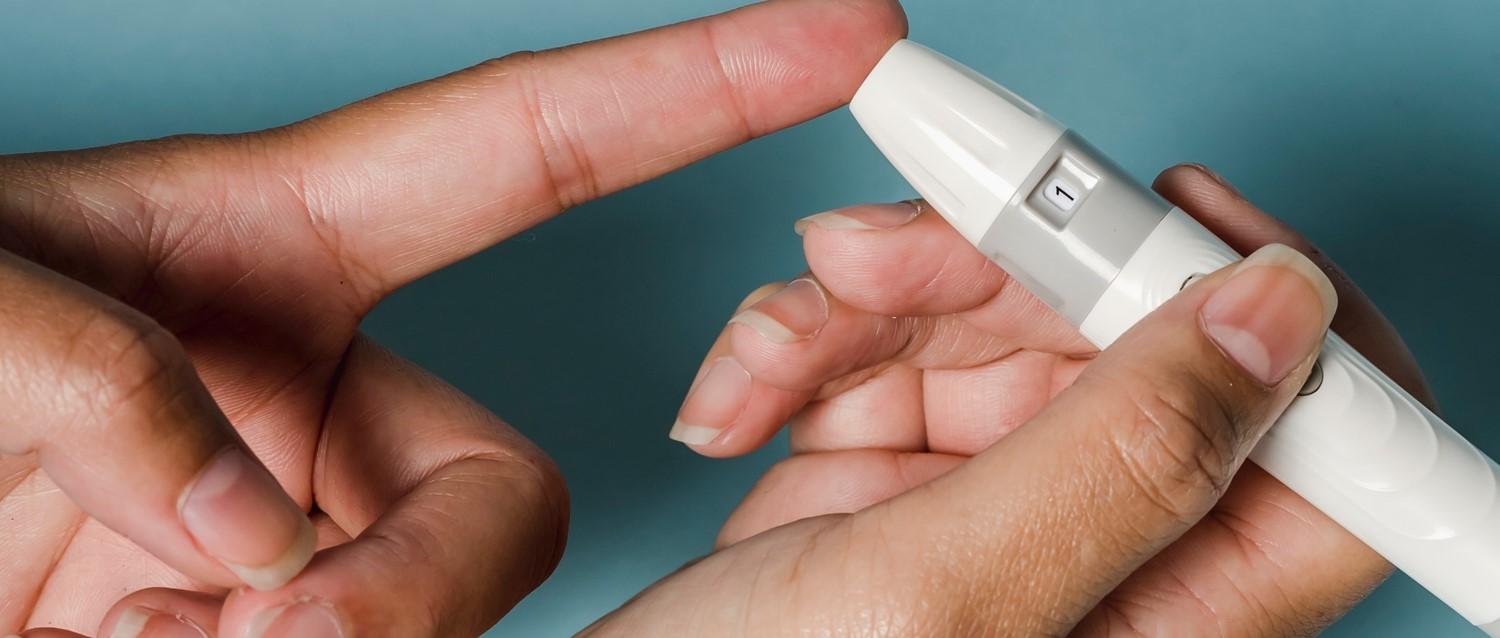
Diapression: unravelling the link between diabetes and depression
Peer reviewed by Dr Krishna Vakharia, MRCGPAuthored by Victoria RawOriginally published 29 Apr 2024
Meets Patient’s editorial guidelines
- DownloadDownload
- Share
- Language
- Discussion
Diabetes can mess with your blood sugar and your mood - it can be tiring and demanding. Living with diabetes means you should pay special attention to your mental and physical health.
Sign up for our free 10-week Diabetes course!
Each week, we'll explore a different topic to help you better understand and manage your diabetes, including everyday living and medicines, to mental wellbeing, the latest in diabetes tech, and nutrition.
By subscribing you accept our Privacy Policy. You can unsubscribe at any time. We never sell your data.
In this article:
Continue reading below
What is diapression?
Depression can affect anyone. In fact, 1 out of 4 UK1 and 1 out of 5 US adults have had depression or anxiety2. People living with diabetes, however, are up to three times more likely to experience depression than people without. For many, the need for constant self-care and lifestyle adjustments that come with diabetes treatment can be physically and emotionally challenging.
Research suggests that this can lead to a person having symptoms of depression alongside those of diabetes3. This overlap of diabetes and depression led to the term 'diapression4.'
The term diapression - sometimes called diabetes distress5 - describes the complicated overlap between depression and diabetes. It is not a formal diagnosis, but it acknowledges the psychological issues faced by those living with both.
What is the link between diabetes and depression?
Understanding the connection between diabetes and depression is a complex issue that is little understood. Diabetes is a long-term condition that affects around 4.3 million people in the UK6 and 38 million in the US.
There are two types of diabetes:
People with type 1 diabetes produce very little insulin or no insulin at all.
People with type 2 diabetes often produce enough or even too much insulin but the tissues aren't sensitive enough to recognise it.
To manage diabetes, you have to make major changes to your diet and exercise routine7. Also some people may have to take insulin or other types of medication several times a day at specific times8. Managing it effectively to keep yourself healthy can feel like a full-time job.
People with pre-existing symptoms of depression can find they become worse because of the sometimes exhaustive nature of everything that comes with routine diabetes management.
Evidence suggests that depression can increase your chance of developing type 2 diabetes9. Some studies found that having long-term high blood sugar (hyperglycaemia) in type 1 diabetes can affect brain chemistry, which may mean a higher chance of developing depression10.
Continue reading below
How does depression affect diabetes treatment?
The impact of diapression is significant. It can create a mix of symptoms and unwelcome side effects arising from both diabetes and depression. This can fuel a negative cycle, where each condition worsens the other, making it harder to manage your diabetes.
These symptoms can include:
Loss of interest in being around people - which can make it harder to keep up with medical appointments.
Major depressive mood cycles - might mean you neglect your medications, stop checking your blood sugars, or both.
Increased tiredness - which is crucial for managing diabetes, can make exercise more daunting.
Overeating - can cause blood sugar levels to spike.
Skipping meals or under-eating - can lead to low blood sugar (hypoglycaemia), especially if you take insulin or other medications that lower blood sugar.
Feeling bad about yourself or having suicidal thoughts - can result in harmful behaviours, which can make managing diabetes even harder 11.
What is the treatment for diapression?
As healthcare experts better understand the link between physical and mental health, treating these two conditions together is becoming more common.
It's important to pay early attention to these symptoms to improve your chances of treatment and recovery12. Managing diabetes alongside depression takes time but Diabetes UK gives this advice to help lift your mood:
Share your feelings with friends and family - helps release built-up feelings and gain a clearer view of your emotions.
Talking therapy - such as cognitive behavioural therapy (CBT) may help improve both your mental wellbeing and overall quality of life13. So if what you're feeling seems more than temporary, it’s time to talk to your doctor.
Regular activity - even if it's just taking a walk or lifting weights in your living room - helps with weight, blood sugar, and the release of feel-good chemicals (endorphins)14.
Explore some positive eating guidance - for insights on nurturing both a healthy body and mind.
Diapression is a condition shared by many and there will be other people going through similar health problems. If you think you are affected by diapression, speak to your doctor for further advice and guidance.
Continue reading below
Further reading
Villarroel et al: Symptoms of Depression Among Adults: United States
Bădescu et al: The association between Diabetes mellitus and Depression
Skinner et al: Twenty-five years of diabetes distress research
Diabetes UK: Number of people living with diabetes in the UK tops 5 million for the first time
Deleskog et al: Severity of depression, anxious distress and the risk of type 2 diabetes
Voiţă-Mekereş et al: A Review of the Level of Depression in Patients with Diabetes
Patient picks for Diabetes mellitus

Diabetes
What is a 'hypo' and can you have one if you don’t have diabetes?
Hypoglycaemia - often colloquially referred to as a 'hypo' - occurs when someone's blood sugar level drops too low. Although it mainly affects people with diabetes, especially if they take insulin, it can be possible for those without diabetes to experience a hypo too. But why exactly does hypoglycaemia happen - and what are the risks?
by Lydia Smith

Diabetes
Your essential guide to exercising with diabetes
Having diabetes doesn’t mean you can’t exercise - after all, Sir Steve Redgrave was diagnosed with type 2 diabetes three years before winning his fifth Olympic gold medal at the Sydney Olympics in 2000.
by Danny Chadburn
Article history
The information on this page is peer reviewed by qualified clinicians.
Next review due: 29 Apr 2027
29 Apr 2024 | Originally published
Authored by:
Victoria RawPeer reviewed by
Dr Krishna Vakharia, MRCGP

Ask, share, connect.
Browse discussions, ask questions, and share experiences across hundreds of health topics.

Feeling unwell?
Assess your symptoms online for free
Sign up to the Patient newsletter
Your weekly dose of clear, trustworthy health advice - written to help you feel informed, confident and in control.
By subscribing you accept our Privacy Policy. You can unsubscribe at any time. We never sell your data.